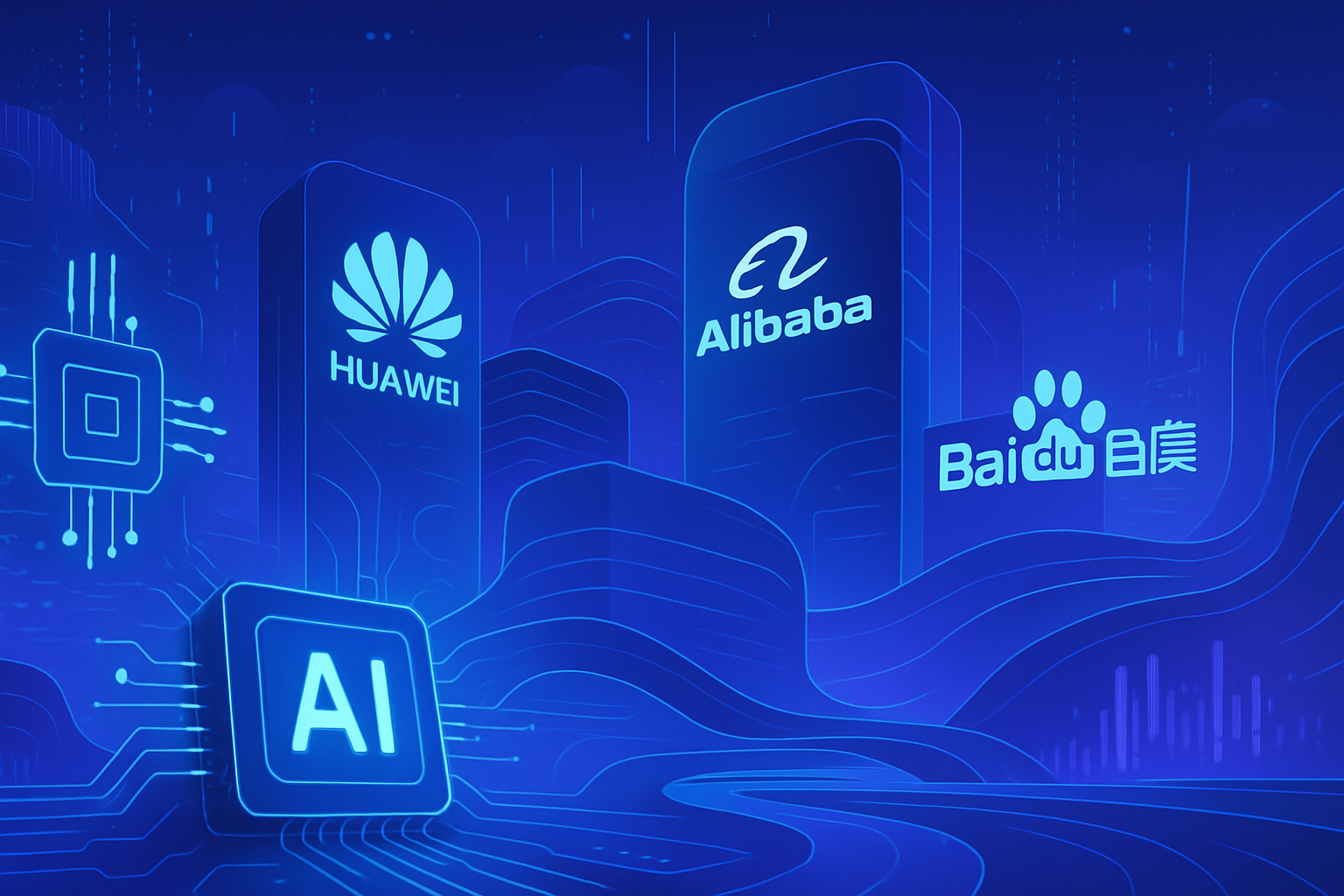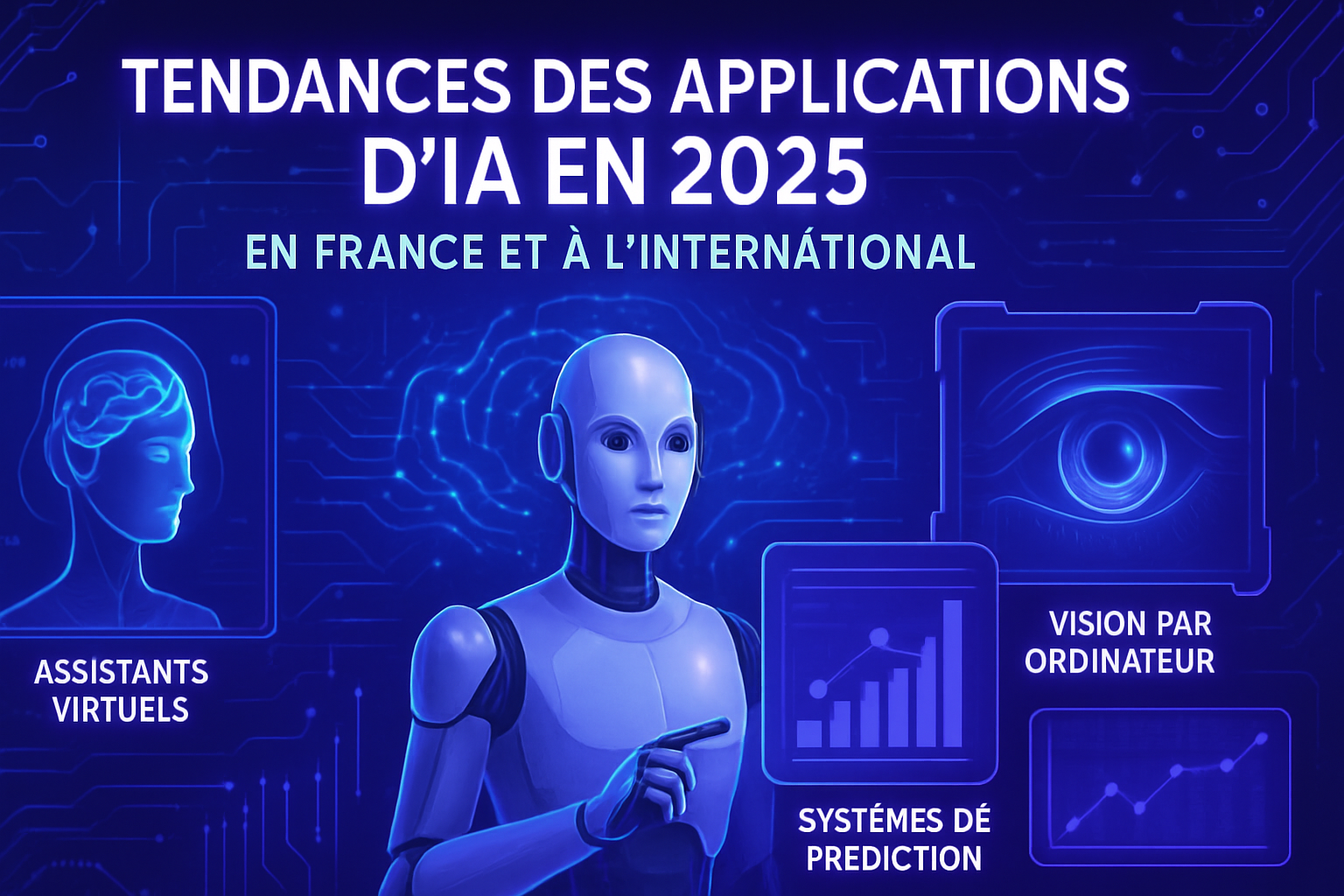Chinese tech giants are revealing bold strategies to circumvent U.S. restrictions on chips. In a landscape where artificial intelligence has become a vital issue, these companies are asserting themselves in an increasingly competitive environment. The ability to *efficiently source semiconductors* and *optimize AI models* now determines their technological future.
Tencent and Baidu, in particular, are developing more efficient AI models while relying on a *resilient local infrastructure*. Thus, these firms are innovating, adapting their approach, and strengthening their position on the global chessboard.
Strategies of Chinese Giants in Response to U.S. Restrictions
Tencent and Baidu, two major Chinese tech companies, are reinventing themselves to face U.S. restrictions regarding electronic chips. Despite geopolitical tensions, these companies demonstrate remarkable resilience. Their main objective: maintain sustained competitiveness in the field of artificial intelligence (AI).
Tencent: Optimization and Strategic Sourcing
Martin Lau, president of Tencent, stated that the company has a “significant stock” of chips, including graphics processing units (GPUs). These components are fundamental for training complex AI models. Contrary to the opinion of some American companies, Tencent has demonstrated that its efficiency does not require massive expansion of GPU clusters. A smaller number of these chips is sufficient to achieve significant results.
Regarding optimization, Lau indicated that Tencent relies on intelligent software to maximize the efficiency of its processes. This allows the company to execute AI tasks without increasing GPU costs. The search for more compact models, requiring less computational power, is also underway.
Baidu: Full-stack Services for AI
Baidu, the leading Chinese search engine, highlights its ability to develop integrated solutions. Dou Shen, president of Baidu AI Cloud, mentioned the company’s “full-stack” capabilities, which combine cloud infrastructure and AI models. These strengths allow Baidu to create powerful applications, even without access to the most advanced chips.
An effective optimization of software has been advocated by Baidu to reduce operational costs. The development of internal technologies also reinforces its market position. The ability to manage large-scale GPU clusters constitutes a competitive advantage in the race for AI.
Evolution of the Semiconductor Ecosystem in China
The development of domestic chips is becoming a major axis of the Chinese strategy. China aims to establish an autonomous semiconductor supply system, from materials to manufacturing. Experts estimate that this ambitious commitment is already bearing fruit, despite some delays compared to American leaders.
Gaurav Gupta, an analyst at Gartner, emphasizes that building chip reserves proves to be an effective tactic to counter export restrictions. Chinese tech firms are innovating in the creation of their own semiconductor ecosystem, although advancements are still varied.
Market Reactions and Upcoming Trends
The American economic community is closely monitoring the advances of Chinese companies. Several leaders, including Jensen Huang, CEO of Nvidia, have urged the U.S. government to reconsider its restrictions due to the progress made by China. These restrictions could harm American companies even more. Enterprises should consider strategic collaborations, especially in research and development.
Current trends suggest an intensifying race for innovation, both in terms of technologies and business practices. The ability of these tech giants to adapt and innovate is a defining factor for the future of their operations on the global stage. A synergy between technological development and resource optimization seems essential.
To learn more about the AI approach in 2025, check out this article on the evolution towards optimization. Meanwhile, CNBC’s newsletter “The China Connection” highlights ongoing technological developments.
Frequently Asked Questions on Chinese Tech Giants’ Strategies in Response to U.S. Chip Restrictions
What are the main strategies employed by Tencent to overcome U.S. chip restrictions?
Tencent relies on a chip supply by stockpiling graphics processing units (GPUs) and optimizing the efficiency of its AI models without the need for massive expansion of its GPU group.
How does Baidu manage to maintain competitiveness in AI despite semiconductor limitations?
Baidu uses an approach called “full stack,” which combines its cloud computing infrastructure, AI models, and applications, while optimizing the operational costs of its models.
Can Chinese tech companies develop sufficient chips for AI to compete with those in the U.S.?
Although Chinese companies are lagging in the manufacturing of cutting-edge GPUs, they have made progress in developing domestic semiconductors that allow them to reduce their dependency on American chips.
What are the consequences of U.S. restrictions on AI innovation in China?
U.S. restrictions put pressure on Chinese companies to accelerate their own technology research, thus strengthening their domestic semiconductor market and their capabilities in artificial intelligence.
How advanced is China in developing its own semiconductor infrastructure?
China is steadily working on its semiconductor supply chain, from materials to manufacturing, and has made significant progress although it is still behind American leaders.
What machine learning models can Chinese companies use to compensate for the lack of access to advanced chip systems?
Companies can opt for smaller AI models that require less computational power, as well as software optimization, to maximize the use of their existing GPU resources.
How do Chinese tech companies manage their GPU resources?
They prioritize performance optimization in virtual environments, which allows them to achieve better results with fewer resources, thus avoiding excessive purchases of new GPUs.
Are the semiconductor technologies developed in China sufficient to support AI in the long term?
Advancements in the development of self-sufficient chips and an efficient software stack create a solid foundation for ongoing innovation in the Chinese AI ecosystem in the long term.






